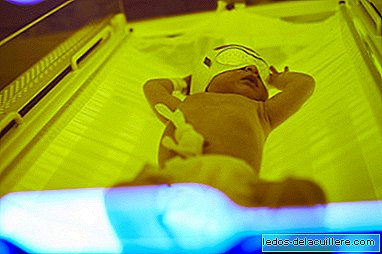
From the moment after birth and during the first weeks the baby has a striking ability to communicate, although sometimes parents do not know decipher their behaviors.
Although they can't talk to us they communicate through crying, expressions on their face and body movements. That is why it is important to observe and know their different behaviors.
- Deep sleep: eyes closed, regular breathing without any activity except small shaking.
- Light sleep: eyes closed, eye movements can be observed through the eyelids, little activity with uncoordinated movements and shaking.
- Drowsiness: semi-sleeping with eyes ajar or closed, variable level of activity.
- Alert: bright look with special attention to the source of stimulation, minimal movements. Duration between 4 and 6 minutes.
- Active: considerable activity with sudden movements of grasping in both upper limbs and pushing in the lower limbs. It may be agitated. Under no circumstances should the newborn's sleep, which sleeps between 16 and 18 hours a day, be interrupted.
Crying can mean different things and obey different causes. As the days go by they will learn to identify and satisfy them. Remember that you are accustomed from before birth to listen to the mother's heartbeat and voice and now she misses those feelings. They are not afraid to spoil it, because they really need physical contact with parents.
One way for newborns to calm down, whatever the reason for their discomfort, is suction. That is the reason why many children seek to suck their hand or calm down when they are offered a pacifier. The sucking reflex is a primary need for the newborn and does not always mean that he is hungry.
Through these tips, parents will be able to get to know their little ones better during the first days of life, making it easier for them to interact with them in a pleasant and positive way.












